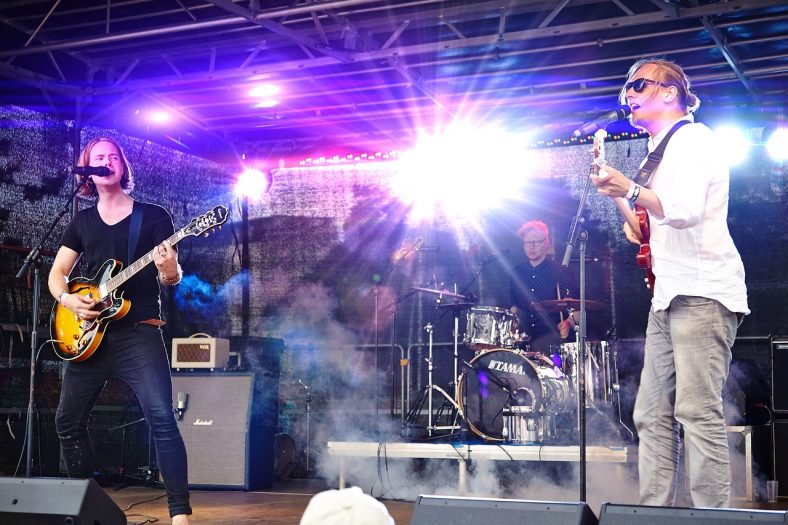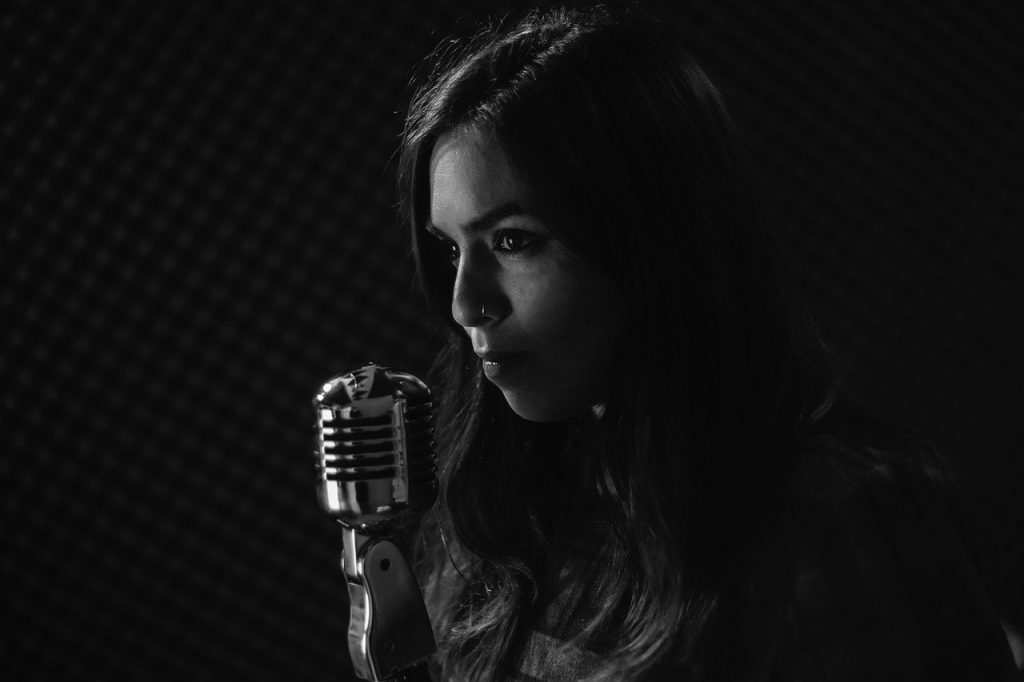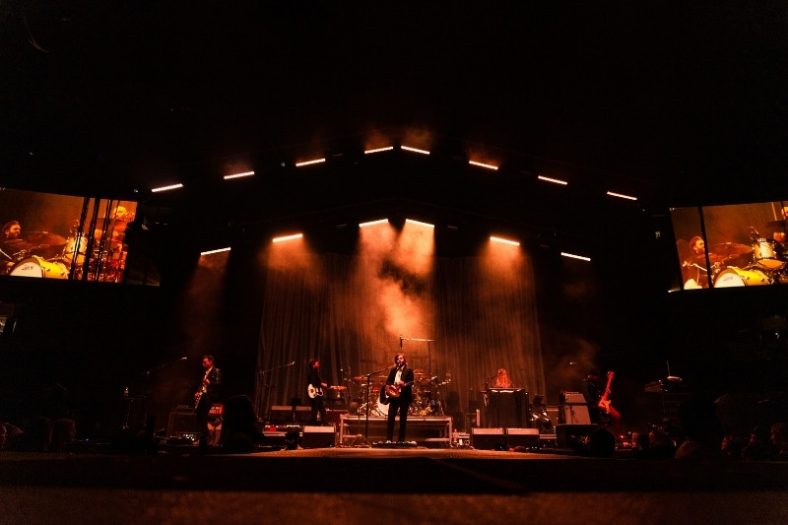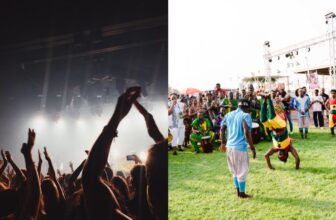How Much Should I Charge for a Gig?

When it comes to payment for a gig, you need to strike a fine balance between not undervaluing yourself while also staying pragmatic about expected fees for gigs in your area. Try to stay realistic about your current level and the demands for your talent. Make sure you’re not undercharging, but sometimes it’s worth recognising the non-monetary benefit of certain gigs.
The local scene is always the best place to start. You should visit your favorite bars and pubs and ask their managers whether there could be a spot for you or your band to perform. You could also join more well-known acts in your town, doing a few opening sets for them. You could also attend open mics, if there are any in your area, and start building a network and collecting contacts.
After this trial stage, you will probably have a larger fanbase and you will have gained some precious performing experience. At this point, you are ready to look for headlining gigs.
You are now a professional. You are offering a service to both your audience and the venue hosting you. Therefore it is only fair that you and your band get paid for your work. Beginners, however, can have a hard time figuring out how much to charge for a performance. There are many factors to consider to avoid losing precious contacts because of a wrong negotiation.
In this article, we’ll go through a few tips on how to charge for your live performance and help you become a better negotiator.
Don’t be that artist who asks for way too much at once. Many people fall short when they ask for too much right away, and it can potentially burn bridges with people if you’re brash about it.
Contents

This is the first item to consider, and it’s as simple as it sounds. Bands get paid more since more people are working at a show. Unless your name is much more well-known, you will typically get paid less than a five-piece band as a solo artist.
Don’t forget to include the slice of cake set aside for any manager or booking agent who has worked on your project.
Consider your expenses
Before rushing into making an offer, consider all of the costs you’ll have to cover to attend the performance.
Are you traveling from another town, another State, another Country? Have you spent quite a lot of bucks to rehearse with your band? Did you have to buy a new piece of gear to make the show better?
Take the time to calculate all of these expenses and see if you can keep costs down by limiting your fee to what you charge for the work. It’s quite typical for a beginning to be shorthanded, yet even so, if you can cover your costs, that is an excellent place to start and slowly move up.
Consider your position in the negotiation
Music venues and festivals are enterprises. They are in for the profit, so you can’t expect them to pay you thousands of dollars if you can’t draw a seriously big audience to your show.
Be realistic when placing your offer. Don’t try to overcharge the venue who’s going to host you or the opportunity will simply walk away with the cash you were longing to earn. But don’t underestimate your project either. Unless you are still at the trial stage mentioned in the introductory paragraph, try to come up with a fair price, avoiding undercharging the venue.
Unfortunately, many musicians are being offered a slew of free or low-paying work in exchange for some “visibility.” Many performers accept these unfair working conditions, making it increasingly difficult for skilled musicians to locate employment and earn a fair wage.
If you’re unsure about what a fair minimum fee would be, try to contact a musician’s union. They’ll be happy to provide all the necessary information.
Ask around for what the usual fee is

You should always ask around what the usual fee is.
Maybe someone played the same gig before you and they can tell you what kind of money they got. Google is your friend, so use it to gather as much information as you can. You could also try talking with someone who was involved in organizing the gig and has some authority (usually a promoter or a manager).
Remember: there’s more than one way to do business and no single answer to this question. You can find a lot of suggestions by going through the experiences of other musicians, but don’t forget that every case is different and you’ll have to assess your context before deciding how much to charge. If you are not sure, it’s okay to be open about it as well: an honest answer will only benefit both of you.
Keep in mind not to overcharge and be mindful that maybe the last performer has a bigger fan base than you, so they could ask for more money. On the other hand, maybe your musical guests are of a higher caliber than the headliners, so you could charge extra as well.
The most important thing is that you understand what is being asked of you, how it will affect your performance, and that you negotiate accordingly.
What kind of gig are you playing?

It is crucial to be aware of the type of gig you will perform. Why? Because different jobs are located in various markets. Wedding tasks, for example, are not in the same market as pub appearances. Pub activities are not in the same market as festivals and so on.
Some jobs demand that you play for longer periods, while others just require a few songs. During some shows, you’ll have an attentive audience eager to hear your song; on other occasions, you’ll be in the background.
On a more modest scale, local events and pubs generally have lower budgets.
These are just a few examples of the differences between one gig and another.
When coming up with an offer, consider these factors:
- will this gig help me reach a wider audience or am I in just for the money?
- how many hours am I going to work?
- what kind of budget do my employers have?
As a sort of rough guide, you could consider the following:
- Weddings, private parties, and corporate gigs are usually the most lucrative. During these kinds of gigs, you are required to work long hours, play covers and requests, put in a lot of rehearsing time. In these settings, music is usually a background element, so your audience won’t be very attentive or prone to listen to your original music. You might get useful contacts and new fans, but the chances are lower than with other kinds of gigs.
- Pub gigs are usually less lucrative. During these kinds of gigs, you might be required to play only a short set of original songs, as the stage will be divided with other bands or artists. Sometimes, however, you get a whole gig for yourself and you are requested to play covers. In the first case scenario, you can’t expect to be paid a lot (sometimes you won’t get paid at all). In the second case scenario, you should charge the venue fairly, as you are going to provide a professional service for their clients.
- Festival gigs can vary a lot in terms of money. Big festival stages can be both lucrative and great in terms of visibility, but they can be accessed only by established acts. Larger festivals often have smaller stages dotted around the venue, which can serve as a platform for you as an artist and to build contacts with festival organisers. Smaller festivals, usually run by local associations, have usually tighter budgets. In this setting, you are often required to perform just a 30 minutes’ set and you are free to play originals. These gigs are great to enlarge your fanbase and get useful contacts, but they are often unpaid.
Summary
When it comes to how much you should get paid, you should be aware that it is often not just about your musical abilities. In many cases, the value of a gig can’t be determined by its nature alone, but also by other factors such as: How much exposure will I get? How much work have I put in so far? What kind of audience will I have? What’s the level of my competition?
These factors should also be considered when negotiating an offer. If you think that your task would be more lucrative if it was assigned on a different date or in another place, don’t hesitate to bring these aspects into play and mention them at the negotiation table.
Your work deserves to be recognized. It’s important financially because performing music for people who appreciate it is the best possible job that can happen to you. But most importantly, charging money for playing your songs could be vital for maintaining a healthy approach to music.
As I said above, there’s no sure-shot guide for how much you should get paid, but the experience is paramount in this case. Keep performing gigs regularly and always ask for money (unless the gig is unpaid) – eventually, you’ll learn what people are ready to pay according to your collaborations.





